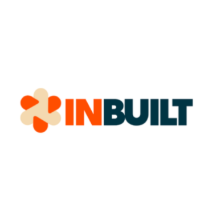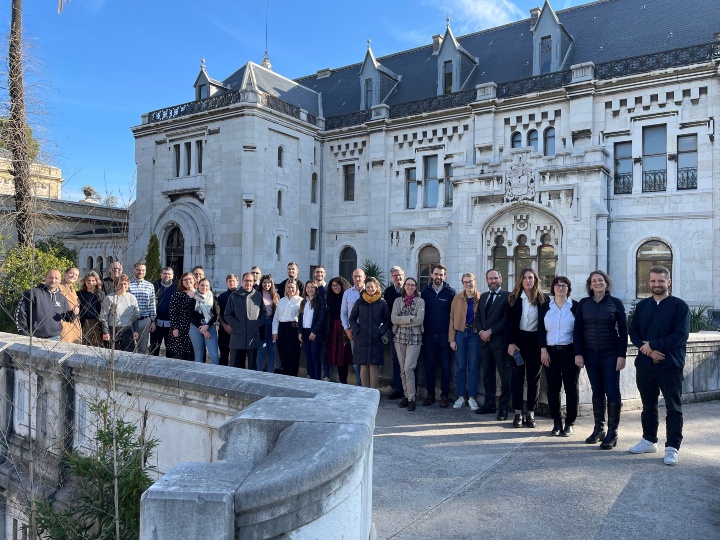Circular economy in the construction industry
"We are concentrating on implementing a resource-conserving circular economy within the construction industry, aiming to contribute to achieving a climate-neutral economy across Europe by 2050 and emission-free status by 2030." say Joachim Schwarte from the Institute of Construction Materials (IWB) and Jürgen Frick from the Materials Testing Institute (MPA). INBUILT aims to drive the change from traditional construction methods to the use of sustainable, digitalized and efficient methods. The project focuses not only on new buildings, but also on renovating existing structures, with the aim of improving the productivity and competitiveness of the construction industry as a whole.
Sustainable products and solutions
The products and solutions targeted for further development and widespread practical application within the framework of INBUILT encompass large-format rammed earth blocks, recycled fired and unfired bricks, hybrid straw-clay panels, recycled concrete and concrete blocks, prefabricated exterior and interior wall elements crafted from reclaimed wood, intelligent windows featuring recycled glass and bio-PUR frames, prefabricated bio-based curtain walls, insulation mats derived from recycled waste paper and textile fibers, bio-based recycled insulation boards/fillers, and second-life photovoltaic panels.
On route to certification
The MPA coordinates contributions from the University of Stuttgart and guides the new sustainable building products towards certification by conducting tests on specific aspects such as thermal conductivity, fire behavior, hygrothermal, and mechanical properties. This process also involves implementing large-scale laboratory tests. It is responsible for the execution and monitoring of the German case studies, one of which is planned as an IBA'27 project in Stuttgart. As part of INBUILT, the IWB is developing and testing methods that can be used in the early development stages of innovative construction products to estimate life cycle assessment data and provide recommendations for action.
Digital building models
The INBUILT partners also want to build a digital platform based on the Building Information Modeling (BIM) approach. Construction planning, execution and subsequent building operation are networked based on a virtual building model. The platform is designed to make the entire life cycle of construction projects, from planning to the end of their useful life, more sustainable and efficient.
About the project:
The INBUILT project (Innovative bio/geographic, reused and recycled products linked to a BIM-based digital platform for low-carbon construction, circular economy, energy and resource efficiency), coordinated by the Université Côte d'Azur, involves 18 partners from all over Europe, including IBA'27 as an associated partner.
A total budget of 9.4 million euros has been allocated for the project. It is being funded with 7.3 million euros from the EU's Horizon Europe research and innovation program as part of the Built4People partnership, which brings together the entire construction value chain to accelerate people-centric innovation for a sustainable built environment. INBUILT will continue until May 2027.
| Contact | You can follow INBUILT on X and LinkedIn: X: @INBUILT_project LinkedIn: INBUILT Project |
|---|



